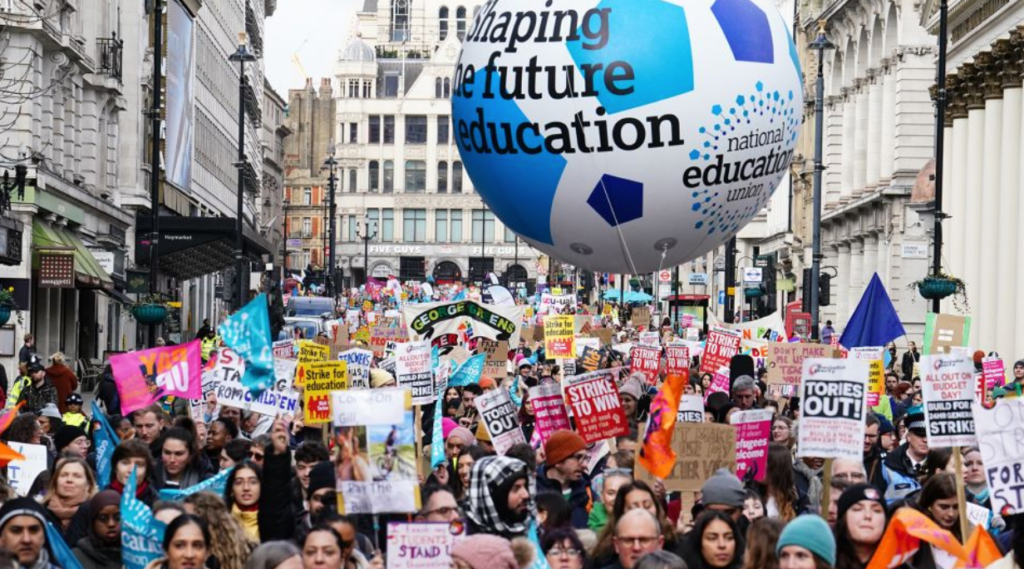Britain Experiences Biggest Strike in Over a Decade

Image Courtesy of CNN Business
By Mariah Solis
On Wednesday, February 1, half a million workers went on a massive strike all across Britain in what unions are calling the largest coordinated strike in over a decade. The strike caused rail networks to standstill, schools to close for the day, and the military to help with border checks as civil servants walked out of their jobs to demand increased pay and better working conditions on “Walkout Wednesday.”
Participants included 300,000 teachers, 70,000 university staff, 100,000 transportation workers, and 100,000 civil servants across 100 departments, including driving instructors, coastguards, and the Department of Work and Pensions staff. A widespread strike like this has not occurred since 2011 over public sector wages.
This unfolded after the introduction of a UK government bill that would require certain workers in the fire, ambulance, education, and rail sectors to continue services during strikes, or else they risk permanent dismissal. The bill has received criticism for being rushed without proper assessments, resulting in rallies conducted by the Trades Union Congress, which represents 48 unions.
The strike is also a response to the public sector’s attempts to resolve disputes by offering raises of 4% or 5%. This was not well received by the public, increasing unrest to the country facing an annual inflation rate of 10.5%.
Roughly 300,000 teachers went on strike, making them the biggest group of participants. The National Education Union (NEU) does not think the 5% increase is adequate for teachers. Their General Secretary Niamh Seeeny argued that there is a “recruitment and retention crisis,” citing that teachers salaries have decreased by 23% since 2010.
The Department of Education does not agree with the actions of NEU, saying that strikes are “highly damaging to children’s education,” mentioning that it’s adding on to stressors surrounding the pandemic.
Prime Minister Rishi Sunak also ridiculed the strikes for forcing schools to close for the day.
“I am clear that our children’s education is precious and they deserve to be in school today being taught,” he said.
Teachers marched throughout London with signs “Save our Schools, Pay Up” and “Children Deserve Better.” Elementary school teacher Hannah Rice wants the marches to make the government listen.
“”This government should be ashamed of the way they are managing things,” she said. “It’s clear people are unhappy, it’s clear that there needs to be a change.”
Britain has already been seeing strikes from Amazon warehouse workers, Royal Mail postal staff, and health and transportation workers in recent months, however Wednesday was a much larger scale. The United Kingdom is expecting to face more strikes from various service departments throughout the rest of February. Most notably, the UK firefighters joined the Fire Brigades Union and voted to strike for the first time since 2003, giving the government until February 9 to improve salaries.
Recognizing recent events, the International Monetary Fund (IMF) predicts that the UK will be the only major economy to fall into recession in 2023. According to research director Pierre-Oliver Gourinchas, the recession and higher cost of living can be attributed to higher energy prices and employment levels not yet recovering from the pandemic.







